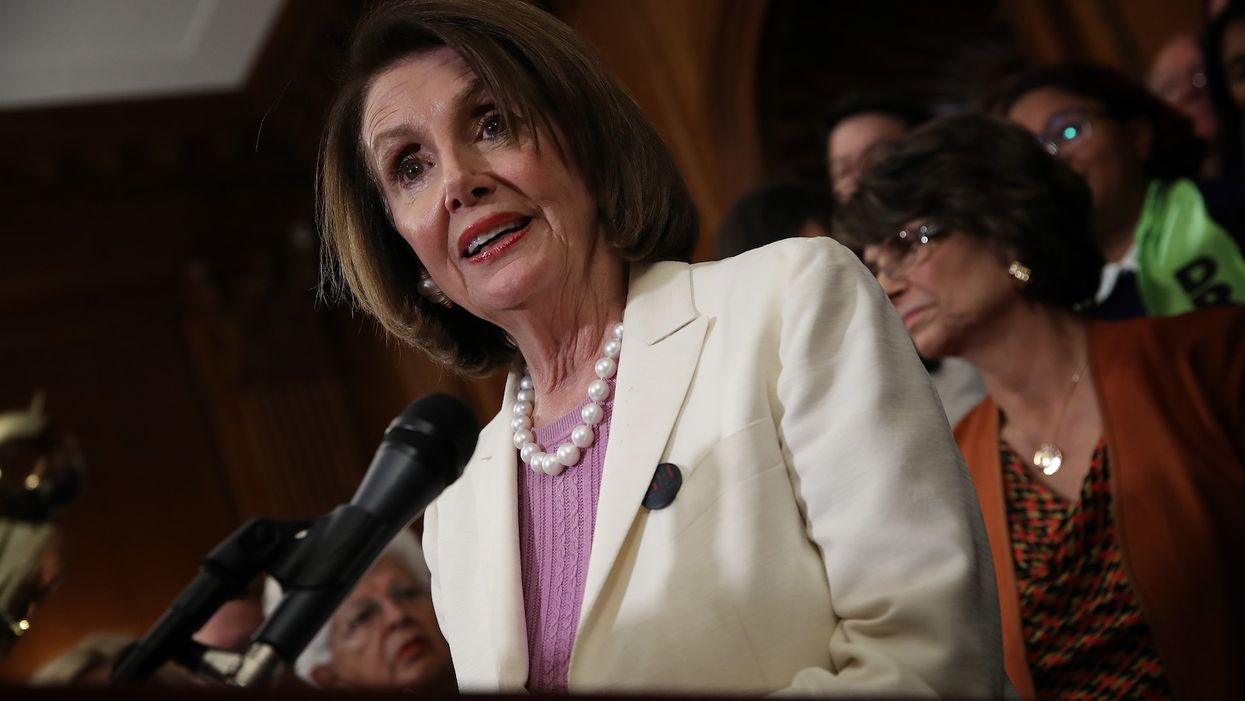
Win McNamee/Getty Images

'No doubt at this very minute, the smuggling cartels are getting the word out ... Congress is going to legalize millions, just get there'
America is currently facing a massive border crisis, and House Democrats along with seven Republicans responded to it Tuesday evening by passing an amnesty bill with absolutely no border security money or asylum system reforms. The final vote was 237-187.
House Resolution 6, or the "American Dream and Promise Act of 2019," would extend amnesty to at least 2.5 million illegal immigrants who were either brought to the U.S. as minors or have been on "Temporary Protected Status." That number is well beyond the estimated 700,000 to 800,000 total DACA recipients. This would take the form of green card status with a path to citizenship.
"The Dream, and now Dream and Promise Act, is urgent for our country," Speaker Nancy Pelosi (D-Calif.) said at the bill's introduction in March, before trying to sell the legislation under a few lines from a Ronald Reagan speech.
However, critics point out that the legislation would do absolutely nothing to address the border enforcement problems and legal loopholes that created the current crisis in the first place.
Conservative Rep. Chip Roy (R-Texas) took to social media Tuesday to say the bill would cost the American taxpayer $34.6 billion, according to the Congressional Budget Office, while providing "$0 (ZERO) dollars for border security" and no asylum reforms.
"What is it?" Roy asked rhetorically. "A complete dereliction of our constitutional duty to #SecureTheBorder and address the ongoing humanitarian crisis at our southern border."
Indeed, according to a summary sheet from House Judiciary Committee Republicans, the total cost of the bill comes from the combined estimated costs of the two bills that make up the legislation in its current form.
But that's not all. The summary also explains that "time constraints" kept the CBO from being able to calculate the potential public cost of aliens who could seek citizenship by violating the terms of their visas and then become eligible for green cards: "That cost is unknown."
Other critics say that the bill's barriers against applicants with criminal histories are too low.
Briefing materials about the bill from the office of Republican Whip Steve Scalise (R-La.) say that "applicants with several misdemeanor convictions can obtain a green card, even if the misdemeanors were violent and resulted in death or bodily injury."
The bill's language bars illegal immigrants who have been convicted of felonies or three separate misdemeanors involving total jail time over 90 days from getting green cards. It also disqualifies those who have been convicted of a "crime of moral turpitude" and those convicted of domestic violence.
However, the bill bars DHS from using state and federal gang databases as the determining factor in disqualifying potential beneficiaries.
"The Democrats are making us consider a bill that will worsen — give a green light — to the border crisis, incentivizing more people to cross our borders illegally in hopes of getting a piece of the amnesty pie," House Judiciary Committee ranking member Doug Collins (R-Ga.) said on the House floor Tuesday. "No doubt at this very minute, the smuggling cartels are getting the word out ... Congress is going to legalize millions, just get there."
Meanwhile, the acting head of the Department of Homeland Security says that the current level of migrants in custody is "beyond sustainable capacity" while this year has seen record levels of border apprehensions.